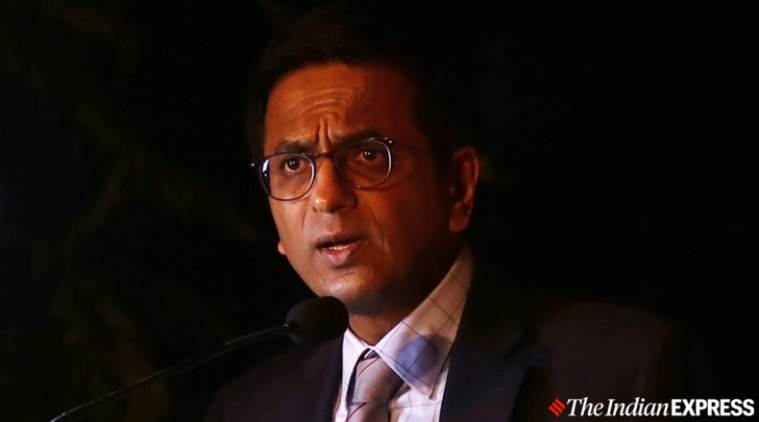 Justice Chandrachud was speaking during a virtual inauguration ceremony of the country’s first e-governance centre at the district court in Nashik. (File/Express photo: Nirmal Harindran)
Justice Chandrachud was speaking during a virtual inauguration ceremony of the country’s first e-governance centre at the district court in Nashik. (File/Express photo: Nirmal Harindran)
Supreme Court judge and chairman of its e-Committee Justice D Y Chandrachud said Saturday virtual courts set up across the country during the coronavirus-induced lockdown had ensured people access to justice.
“As a result of virtual courts, which were put into place all over the country, we have avoided a shutdown. We have prevented access to justice being locked down during the period of the crisis. Our courts are open and able to function and we have been enabled to prevent an outbreak of infection in the court system and beyond,” Justice Chandrachud said.
Between March 24 and July 24, a total of 18,03,327 cases were registered at courts across India, of which 7, 90, 112 were disposed of, he said. In the district courts across Maharashtra, 2,22,431 cases were registered and 61, 986 were disposed of, he added.
Justice Chandrachud was speaking during a virtual inauguration ceremony of the country’s first e-governance centre at the district court in Nashik.
Under the project, courts will provide various services for litigants and lawyers for e-filing. Bombay High Court Chief Justice Dipankar Datta and other members of the judiciary also attended the event through video-conference.
Virtual courts, Justice Chandrachud said, were set up under “exceptional circumstances” and were not there to stay. “Virtual courts were introduced to prevent justice from being locked down during the period of crisis. The joy, confidence and power of the open court hearings can never be replaced. But technology has given us some insight on how in the future, we can combine hybrid systems using technology, where open court hearings can be supplemented. These are intended to be special measures set up under very very exceptional circumstances and gradually we will go back to physical court hearings guided by public health experts,” he said.
The Supreme Court judge also said that technology could be used in future to create a hybrid system of justice delivery through physical and e-courts and added that e-Seva Kendra or e-Governance Centres would be constituted across all districts of India to reach lawyers practising at talukas and other subordinate courts.
The Bombay High Court Chief Justice Dipankar Datta said more than 1,000 cases were heard by the high court during the lockdown period and most of them were disposed of. Referring to representations made by lawyers of the High Court seeking a hybrid system in functioning of the court, Chief Justice Datta said most of the HCs, which had to resume physical court, had to suspend it due to the outbreak.
“Drawing from their experiences, any knee-jerk reaction should be avoided,” he said.